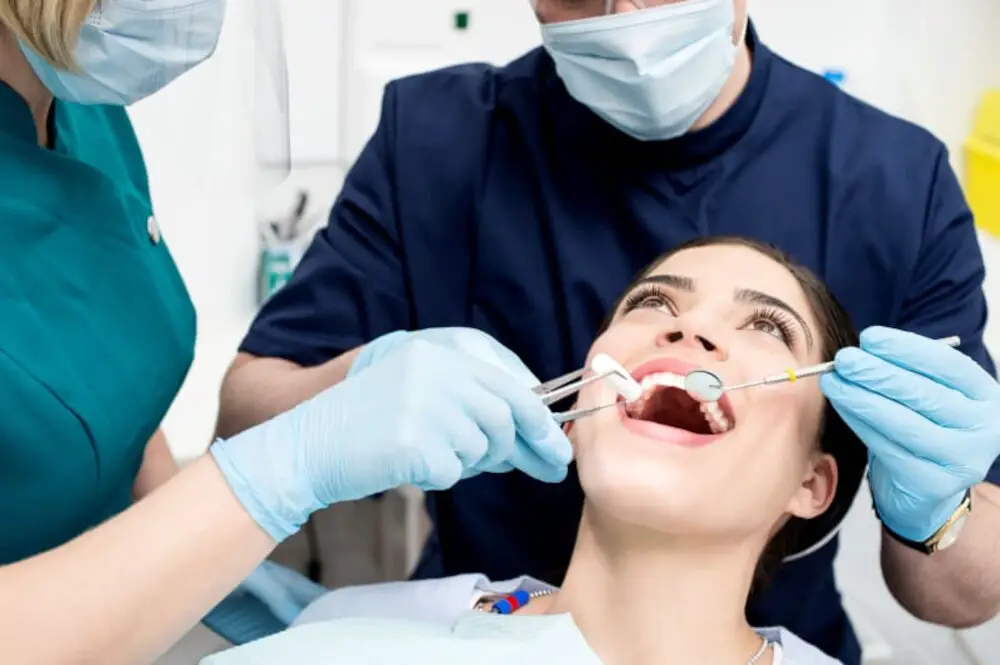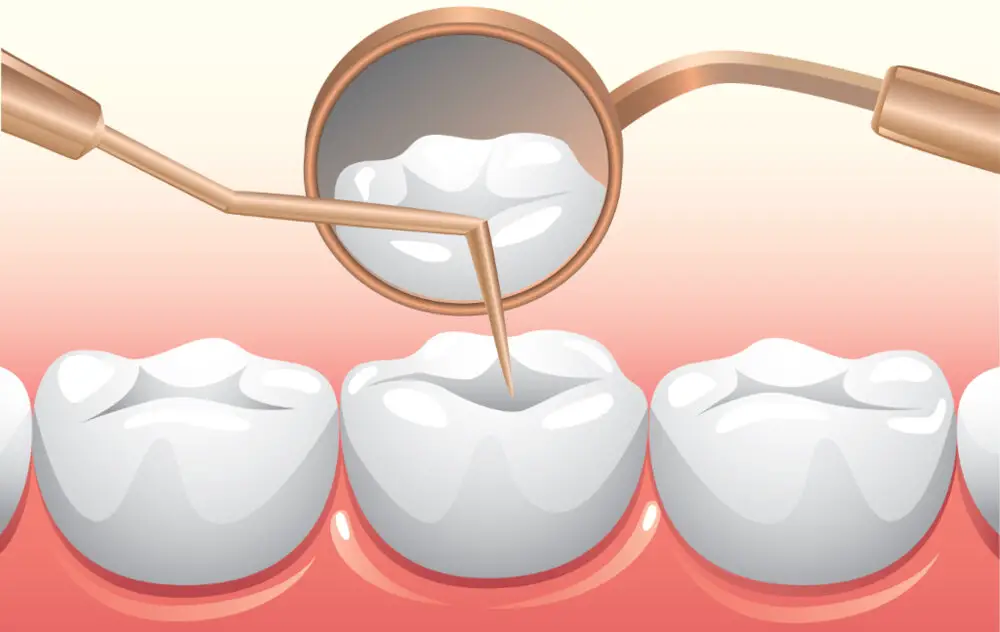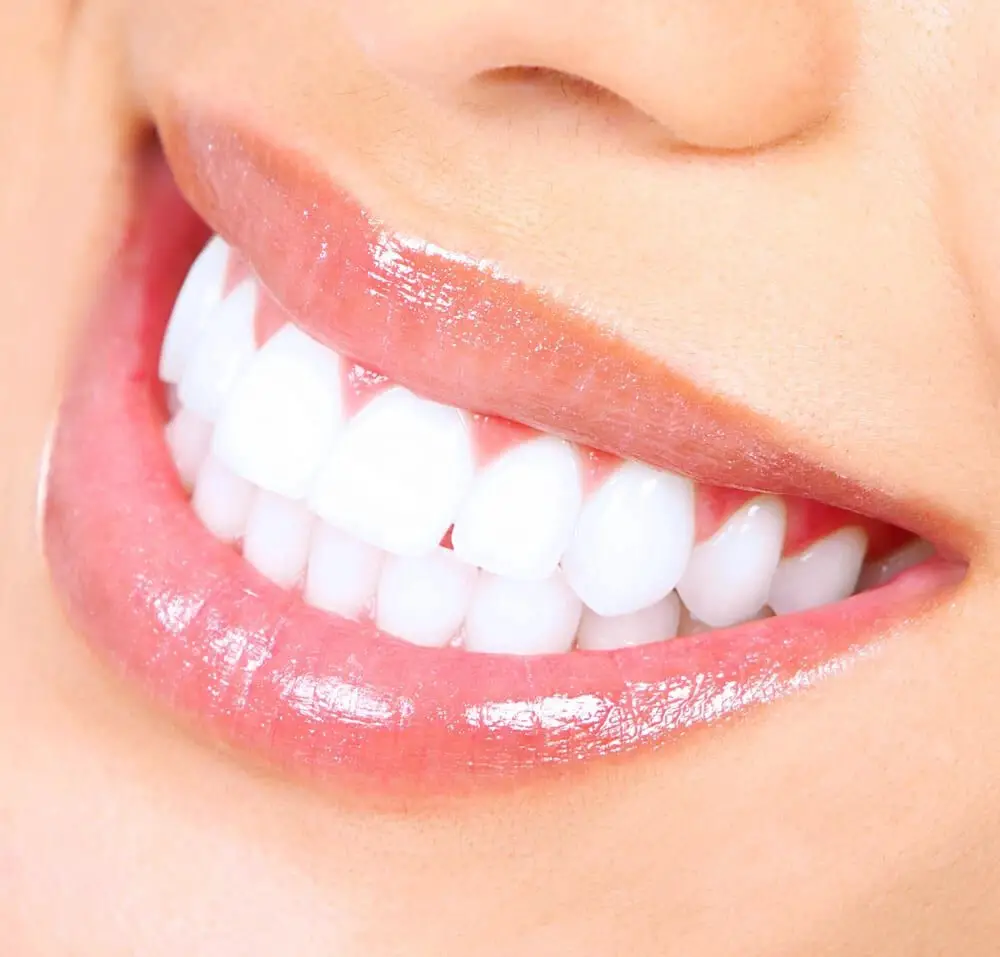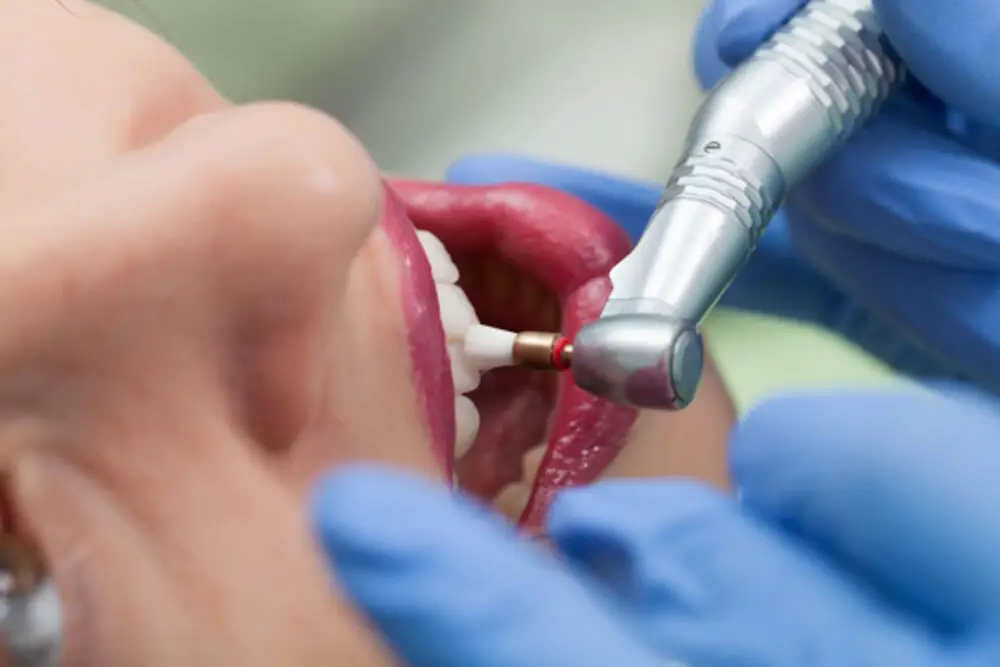5 Signs You Need Your Wisdom Teeth Removed: A Comprehensive Guide

Wisdom teeth are the third set of molars that typically emerge in the late teenage years or early twenties. While these teeth can be helpful for chewing and grinding, they can also cause serious problems if they don’t come in properly. If you’re experiencing pain, swelling, or other symptoms in the back of your mouth, it could be a sign that you need your wisdom teeth removed. In this comprehensive guide, we’ll explore some of the common signs that it’s time to say goodbye to these troublesome teeth and what you can expect during the removal process. One of the most common signs that you need your wisdom teeth removed is pain or discomfort in the back of your mouth. This pain can be caused by a variety of factors, including impacted teeth, infection, or inflammation. If you’re experiencing persistent pain or discomfort in your gums or jaw, it’s important to consult with a dentist or oral surgeon to determine if your wisdom teeth are the cause. Other signs that you may need your wisdom teeth removed include swelling or tenderness in the gums, difficulty opening your mouth, or a foul taste or odor in your mouth. By recognizing these signs early on, you can take steps to protect your oral health and avoid more serious problems down the line.
Wisdom teeth, also known as third molars, are the last set of teeth to grow in the back of the mouth. They usually emerge between the ages of 17 and 25. Most adults have four wisdom teeth, but some people may have fewer or even none. Despite their name, wisdom teeth do not provide any additional wisdom. In fact, they can cause a lot of discomfort and problems, such as overcrowding, impaction, infection, and decay. That’s why many dentists recommend removing them before they cause any serious complications. Wisdom teeth removal is a common and safe procedure that can prevent pain, swelling, and other oral health issues.
Removing wisdom teeth is an important decision that requires consideration of several factors. These teeth are often removed due to various reasons such as overcrowding, impaction, or infection. Failure to remove them can lead to serious dental problems, including decay, gum disease, and even cysts. Additionally, wisdom teeth can cause pain and discomfort, swelling, and infection if they are not removed. It is important to seek advice from a dental professional to determine whether or not wisdom teeth removal is necessary. With proper care and attention, removing wisdom teeth can help maintain oral health and prevent future dental problems.
Sign 1: Pain and Discomfort

One of the most obvious signs that you may need your wisdom teeth removed is pain and discomfort. As these teeth begin to emerge, they can cause pressure and discomfort in the back of your mouth. This pressure can cause headaches, earaches, and general discomfort. In some cases, the pain can be quite severe and may even radiate to other areas of the face or neck. If you experience pain or discomfort in the back of your mouth, it’s important to schedule an appointment with your dentist as soon as possible. They can examine your teeth and determine whether your wisdom teeth are causing the problem. If they are, they may recommend that you have them extracted. This procedure is typically done under local anesthesia, so you won’t feel any pain during the procedure. Afterward, you may experience some discomfort and swelling, but this will typically subside within a few days.
Pain associated with wisdom teeth can vary from mild discomfort to excruciating agony. The pain may be constant or intermittent, throbbing or sharp, and can radiate to the surrounding areas such as the jaw, ears, and neck. In some cases, the pain can be accompanied by swelling, redness, and tenderness in the gums. It is important to note that impacted wisdom teeth, which are teeth that do not fully emerge from the gums, can cause more severe pain and increase the risk of infection. If you are experiencing any pain or discomfort in the area of your wisdom teeth, it is essential to seek dental advice to determine if removal is necessary.
It is important to see a dentist regularly to maintain good oral health, but there are certain signs that may indicate the need for wisdom teeth removal. If you experience pain or swelling in the back of your mouth, difficulty opening your mouth, or bad breath, it may be time to schedule a visit with your dentist. Additionally, if you notice a cyst or tumor in your mouth or have trouble biting or chewing, it is important to seek professional help. Wisdom teeth removal is a common procedure that can improve your overall oral health and prevent future problems, so don’t hesitate to schedule an appointment if you are experiencing any of these symptoms.
Sign 2: Swelling and Inflammation

Swelling and inflammation are one of the most common signs that indicate the need for wisdom teeth removal. The wisdom teeth are the last molars to emerge in the mouth, and sometimes there isn’t enough space for them to grow properly. When this happens, the wisdom teeth can become impacted, which means they are unable to emerge from the gum line fully. This can cause swelling and inflammation in the surrounding tissue, which can be painful and uncomfortable. In some cases, the swelling and inflammation can be so severe that it causes difficulty in opening the mouth or even difficulty in breathing. If you notice swelling and inflammation around your wisdom teeth, it’s important to seek dental attention as soon as possible. Your dentist will conduct a thorough examination of your mouth and may take x-rays to determine the extent of the problem. If your wisdom teeth are impacted, your dentist will likely recommend removal. This is a routine procedure that is done under local anesthesia, and most patients recover within a few days. Removing impacted wisdom teeth can help to alleviate the swelling and inflammation, as well as prevent future problems such as infection, decay, and damage to adjacent teeth.
Swelling and inflammation are common symptoms associated with wisdom teeth removal. Swelling occurs as a result of the body’s immune response to the trauma caused by the surgery. Inflammation, on the other hand, is the redness, warmth, and pain that accompany swelling. The body’s immune response sends white blood cells to the site of trauma to protect the body from infection. This process causes blood vessels to dilate, leading to increased blood flow and swelling. Inflammation can be managed with over-the-counter pain medications and cold compresses. However, if swelling and inflammation persist or worsen, it may be a sign of infection, and medical attention should be sought immediately.
When it comes to dental health, it’s important to see a dentist regularly to maintain healthy teeth and gums. However, there are certain signs that indicate you need to see a dentist urgently. These signs include severe tooth pain, bleeding gums, persistent bad breath, loose teeth, and wisdom teeth eruption. If you experience any of these symptoms, it’s important to seek dental attention immediately. Neglecting these symptoms can lead to severe dental problems such as gum disease, tooth loss, and impacted wisdom teeth. Therefore, it’s essential to prioritize your dental health and see a dentist as soon as possible if you notice any of these signs.
Sign 3: Difficulty Opening Mouth

The third sign that indicates you may need your wisdom teeth removed is difficulty opening your mouth. If you experience pain or discomfort when opening your mouth, it may be an indication that your wisdom teeth are impacted or infected. This could be due to the limited space in your mouth, which causes the wisdom teeth to grow at an angle or partially emerge from the gum line. If left untreated, this can lead to the misalignment of your teeth, infection, and even damage to your jawbone. Therefore, it is essential to seek dental treatment immediately if you have difficulty opening your mouth. Difficulty opening your mouth can also lead to difficulties in eating and speaking. It can cause discomfort and pain, which can make it challenging to chew your food properly or speak clearly. This can affect your daily life, making it difficult to perform regular activities like eating and communicating with others. If you experience difficulty opening your mouth, it is vital to seek dental treatment immediately to prevent further complications and improve your quality of life. By doing so, you can avoid the discomfort and pain that come with impacted or infected wisdom teeth.
Difficulty opening your mouth is another sign that you may need to have your wisdom teeth removed. As these teeth emerge, they can cause swelling and inflammation in the surrounding tissues, which can make it difficult to open your mouth fully. This can also be accompanied by pain and discomfort, especially when trying to eat or speak. If you notice that your jaw feels stiff or you are experiencing any difficulty opening your mouth, it is important to schedule an appointment with your dentist or oral surgeon to determine the cause and whether or not wisdom tooth extraction is necessary.
Wisdom teeth removal is a common dental procedure that aims to eliminate the discomfort and pain caused by these molars. Wisdom teeth, also known as third molars, usually appear between the ages of 17 and 25. However, not everyone experiences problems with them, and some people have no wisdom teeth at all. The cause of wisdom teeth removal is usually due to their misalignment, which can lead to a variety of issues such as overcrowding, infection, and damage to neighbouring teeth. Additionally, impacted wisdom teeth, which are teeth that don’t fully emerge from the gums, can also cause pain and discomfort. Therefore, if you are experiencing any of the symptoms associated with wisdom teeth problems, it is always best to consult with your dentist to determine the best course of action.
Regular dental check-ups are essential to maintain oral health, but there are times when you may need to see a dentist urgently. Firstly, if you are experiencing severe pain or swelling in your mouth, it’s important to see a dentist right away. This could be due to an infection or impacted wisdom teeth. Secondly, if you notice redness or bleeding in your gums, it may indicate gum disease, which can lead to tooth loss if left untreated. Thirdly, if you experience chronic bad breath or a persistent bad taste in your mouth, it may be a sign of an underlying dental issue. Fourthly, if you have a loose or damaged tooth, it’s important to see a dentist to prevent further damage and potential tooth loss. Finally, if you haven’t had a dental check-up in over six months, it’s a good idea to schedule an appointment to ensure your teeth and gums are healthy.
Sign 4: Gum Infection

If you are experiencing a painful or swollen gum near your wisdom teeth, then it is highly possible that you have developed gum infection. Gum infection is a common sign of wisdom teeth eruption, and it occurs when bacteria accumulate in the gum pockets surrounding the teeth. It is essential to treat gum infection immediately because if left untreated, it can lead to severe complications, such as abscesses, jawbone damage, and even tooth loss. The symptoms of gum infection include pain, swelling, redness, and bleeding around the gum line. If you are experiencing any of these symptoms, it is best to consult your dentist immediately. Gum infection can be prevented by maintaining good oral hygiene and visiting the dentist regularly. Brushing and flossing your teeth twice a day can help remove plaque and bacteria that can cause infection. Additionally, using an antiseptic mouthwash can also help prevent gum infection. If you have developed gum infection due to wisdom teeth eruption, your dentist may recommend removing the teeth. Wisdom teeth removal is a common procedure that can prevent complications associated with wisdom teeth eruption, such as gum infection, tooth decay, and misalignment of teeth.
A gum infection, also known as periodontitis, is a serious dental condition that affects the gum tissue surrounding the teeth. It is caused by the buildup of plaque and tartar on the teeth, which can lead to inflammation and infection. Symptoms of gum infection may include redness, swelling, tenderness, bleeding gums, and bad breath. If left untreated, gum infection can cause the gums to recede and the teeth to become loose, which can ultimately lead to tooth loss. Therefore, it is important to seek dental treatment as soon as possible if you suspect you have a gum infection.
Wisdom teeth are the last molars that erupt at the back of your mouth, usually between the ages of 17 and 25. While some people have no issues with their wisdom teeth, others may experience symptoms that require removal. One of the most common symptoms is pain or discomfort in the back of the mouth, which can be caused by wisdom teeth pushing against other teeth or gums. Another symptom is swelling or redness in the gums around the wisdom teeth, which can be a sign of infection or inflammation. Additionally, some people may experience difficulty opening their mouth or chewing, as well as bad breath or a foul taste in their mouth. If you are experiencing any of these symptoms, it is important to consult with your dentist or oral surgeon to determine if removal of your wisdom teeth is necessary.
It’s essential to visit a dentist regularly to maintain good oral health. However, there are specific signs that indicate you need to see a dentist immediately. If you experience consistent pain or swelling in your mouth, it’s time to schedule an appointment. Additionally, if you have bleeding or sore gums, it could be a sign of gum disease, which requires professional treatment. Another indication that you need to see a dentist is if you have bad breath that doesn’t go away even after brushing and flossing. Lastly, if you notice any changes in the appearance or texture of your teeth, it’s time to get a dental check-up. These signs could indicate a severe problem that requires prompt attention from a dentist.
Sign 5: Crowded Teeth

Crowded teeth are a common indication that wisdom teeth may need to be removed. When wisdom teeth emerge, they often do not have enough space to properly align with the other teeth, causing crowding and shifting of the surrounding teeth. This can lead to discomfort, difficulty biting or chewing, and even jaw pain. Crowded teeth can also lead to oral hygiene issues, as the tight spaces between teeth can be difficult to clean, and can increase the risk of tooth decay and gum disease. Removing wisdom teeth can alleviate these issues and prevent further damage to the surrounding teeth and gums. If left untreated, crowded teeth can also lead to more severe dental problems, such as infections and cysts. These can cause swelling, pain, and damage to the surrounding teeth and bone. In some cases, the cysts may even require surgery to remove. It’s important to have your wisdom teeth evaluated by a dentist or oral surgeon if you are experiencing crowded teeth or other signs of wisdom teeth problems. They can determine if removal is necessary and help you avoid potential complications.
Crowded teeth occur when there is not enough space in the jaw to accommodate all teeth. This can happen for various reasons, such as genetics, tooth decay or gum disease. When teeth are crowded, it can lead to discomfort, difficulty chewing, and an increased risk of dental issues such as cavities and gum disease. Wisdom teeth can also contribute to crowding, as they often erupt in a way that pushes other teeth out of alignment. In some cases, the only solution to crowded teeth is orthodontic treatment such as braces or Invisalign, while in other cases, the wisdom teeth may need to be removed to make space for the other teeth in the mouth.
Wisdom teeth, also known as third molars, are the last set of teeth to develop and emerge in your mouth, usually between the ages of 17 and 25. While they were once essential for our ancestors to chew tough foods, they are now considered vestigial organs that serve little purpose. In fact, wisdom teeth can often cause dental problems, such as crowding, impaction, infection, and decay, due to their position at the back of the mouth and their large size. Therefore, removing wisdom teeth is often recommended to prevent further complications and maintain optimal oral health.
Regular dental check-ups and cleanings are crucial to maintaining good oral health, but there are certain signs that may indicate you need to see a dentist immediately. If you are experiencing intense pain or swelling in the back of your mouth, you may have impacted wisdom teeth and need to seek dental care. Other signs that may indicate the need for removal of wisdom teeth include bleeding gums, difficulty opening your mouth, and persistent bad breath. It is important to address these symptoms as soon as possible to prevent further damage to your teeth and gums. Your dentist can evaluate your unique situation and recommend the best course of action to alleviate your symptoms and protect your overall oral health.
Wisdom teeth are the third molars that emerge at the back of your jawline, usually between the ages of 17 and 25. While some people have enough space for their wisdom teeth to grow normally, others may experience complications that require removal. If you’re wondering whether you need to have your wisdom teeth removed, there are five common signs to watch for. These include pain and discomfort in the back of the mouth, swelling and tenderness of the gums, difficulty opening your mouth, frequent infections, and crowding or shifting of your existing teeth. If you experience any of these symptoms, it’s best to consult with your dentist to determine if wisdom tooth extraction is necessary.
Regular dental visits are crucial for maintaining good oral health. A dentist can help diagnose and treat a variety of dental issues, including problems with wisdom teeth. If left untreated, impacted wisdom teeth can lead to a host of problems, such as overcrowding, gum disease, and even cysts or tumors. Seeing a dentist regularly can help catch these issues early on, allowing for prompt treatment and prevention of more serious problems down the line. Additionally, a dentist can provide advice on proper dental hygiene techniques and offer preventative measures, such as sealants or fluoride treatments, to keep teeth healthy and strong. Overall, making regular appointments with a dentist is an important part of maintaining good oral health and preventing future dental problems.
The benefits of wisdom teeth removal are numerous. First, it can prevent overcrowding of teeth, which can lead to misalignment and other dental problems. Removal can also prevent the development of cysts and tumors that can damage the jawbone and adjacent teeth. Additionally, removing wisdom teeth can prevent the formation of gum disease and tooth decay, as these teeth are often difficult to clean and can harbor bacteria. Finally, getting your wisdom teeth removed can provide relief from the pain and discomfort associated with impacted or infected teeth. Overall, wisdom teeth removal can improve your oral health and prevent future complications, making it an important procedure to consider if you are experiencing any signs of trouble.
Conclusion

In conclusion, knowing the signs that indicate the need for wisdom teeth removal is crucial for maintaining good oral health. If you experience any of the warning signals such as pain, swelling, infection, or difficulty opening your mouth, you should immediately consult with your dentist or oral surgeon. Remember that ignoring the symptoms can lead to serious dental complications and even affect your overall well-being. Therefore, it’s better to take preventive measures and get your wisdom teeth removed as per the recommendation of your dental professional. By doing so, you can ensure a healthy, pain-free, and beautiful smile for a lifetime.







